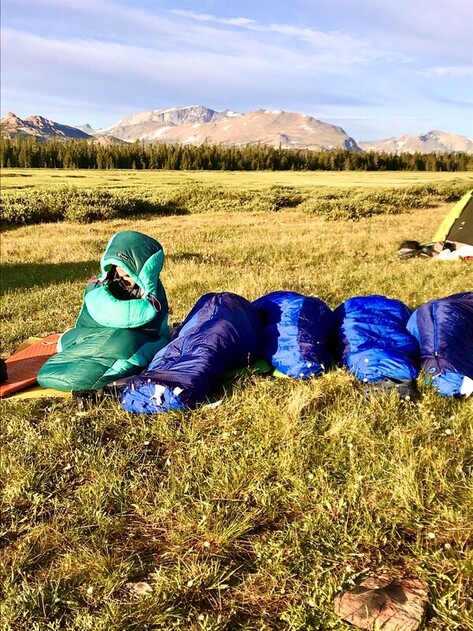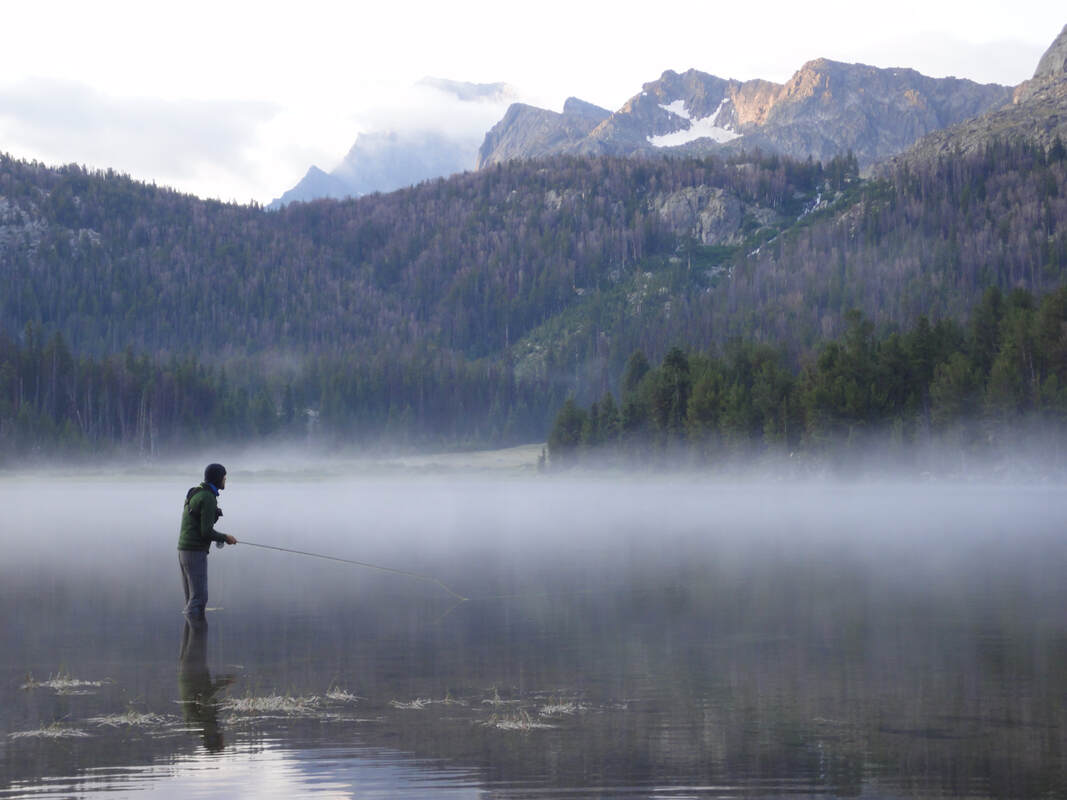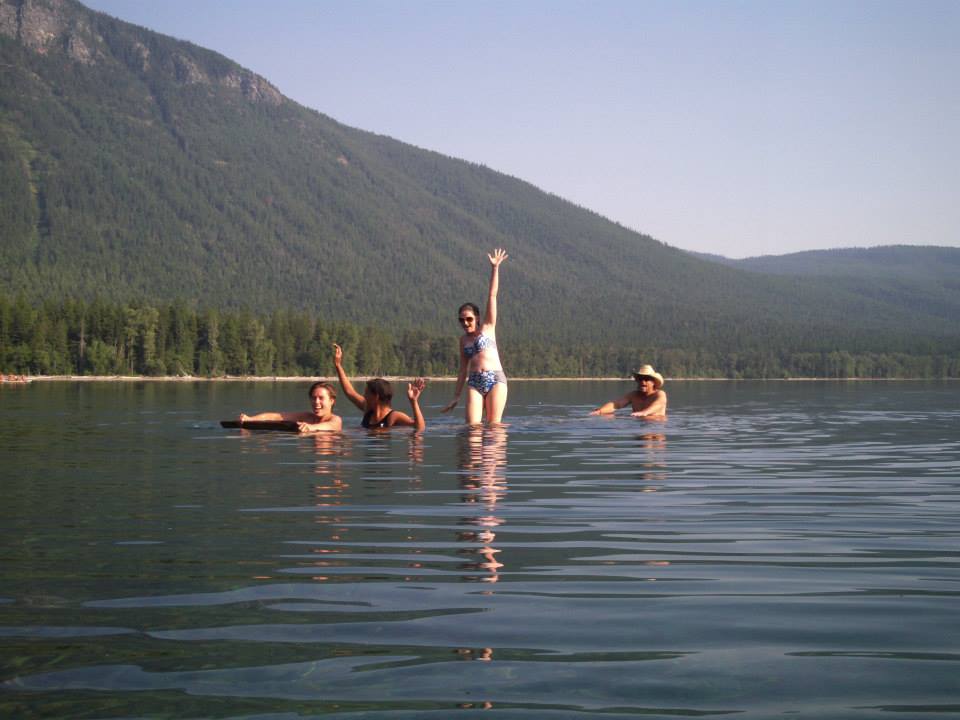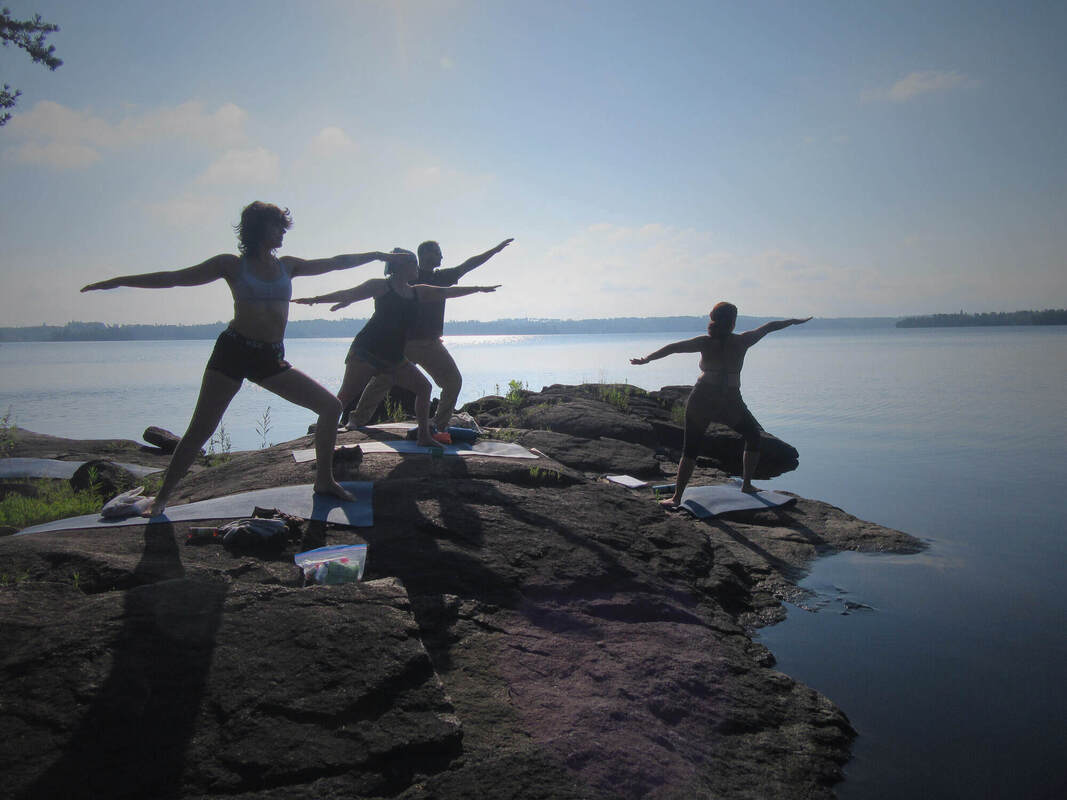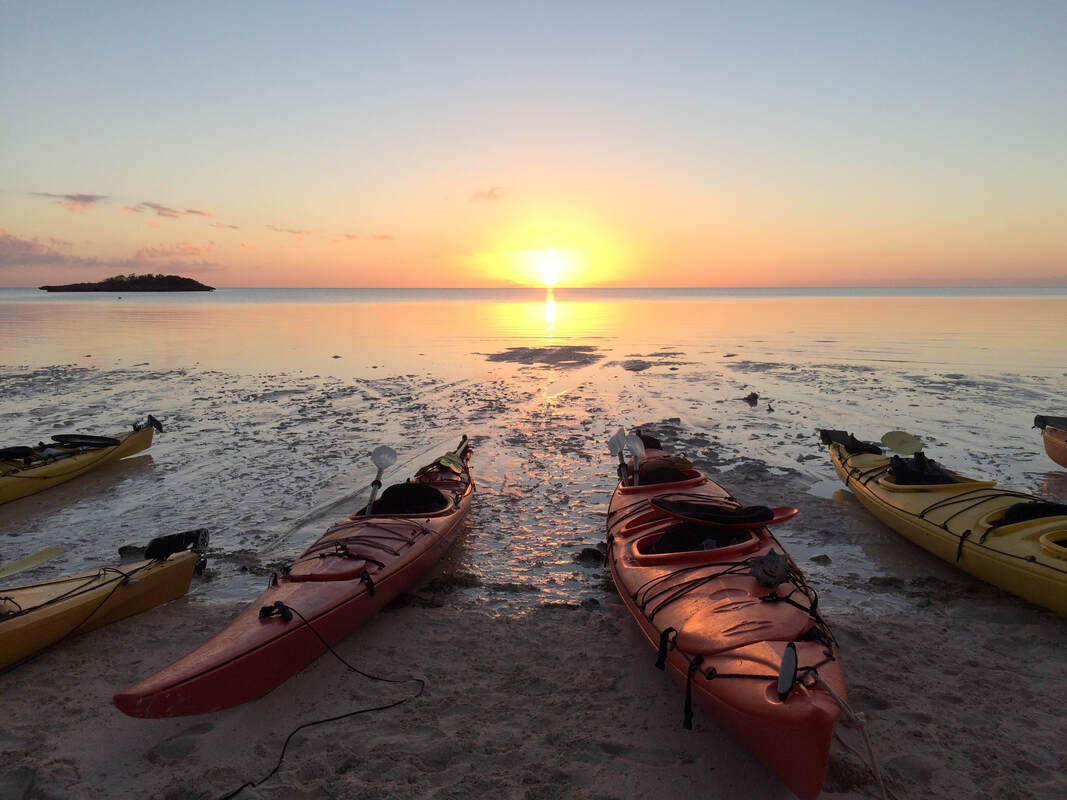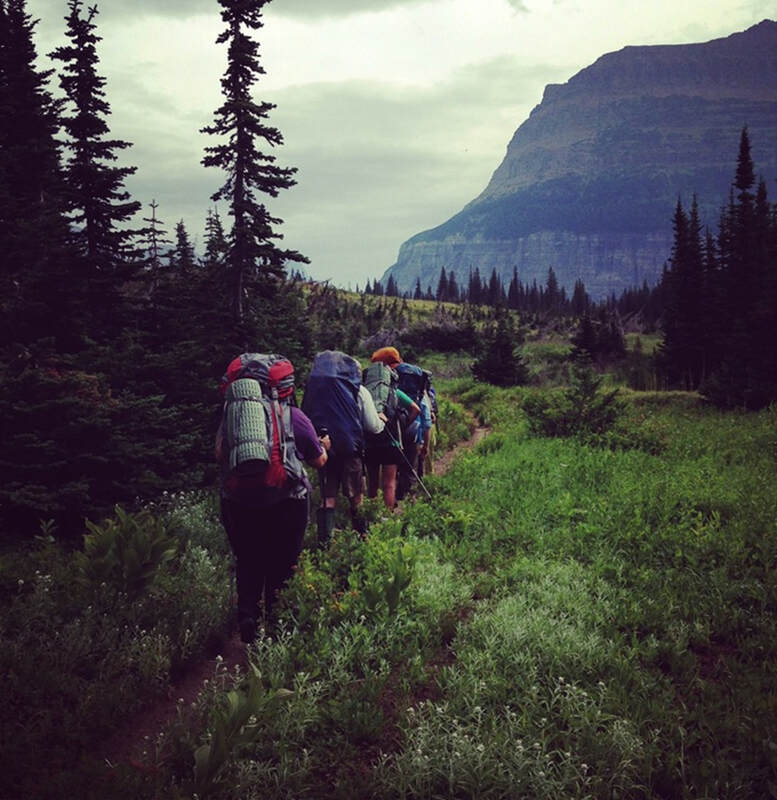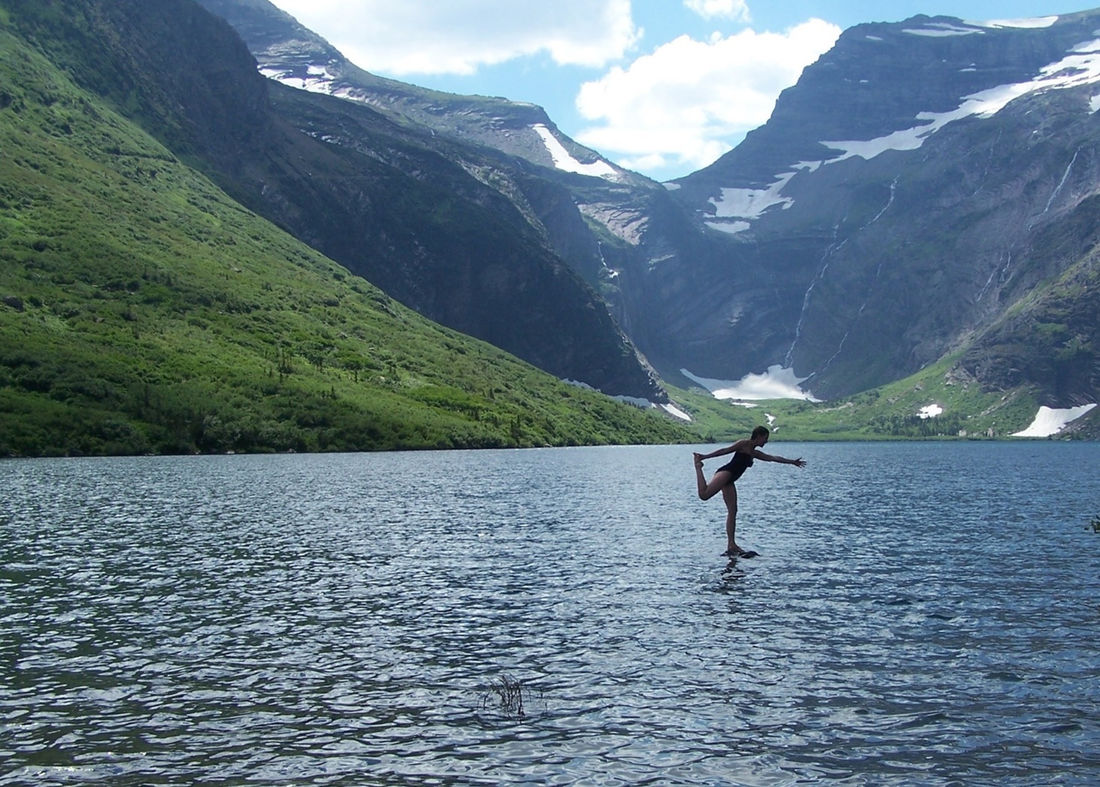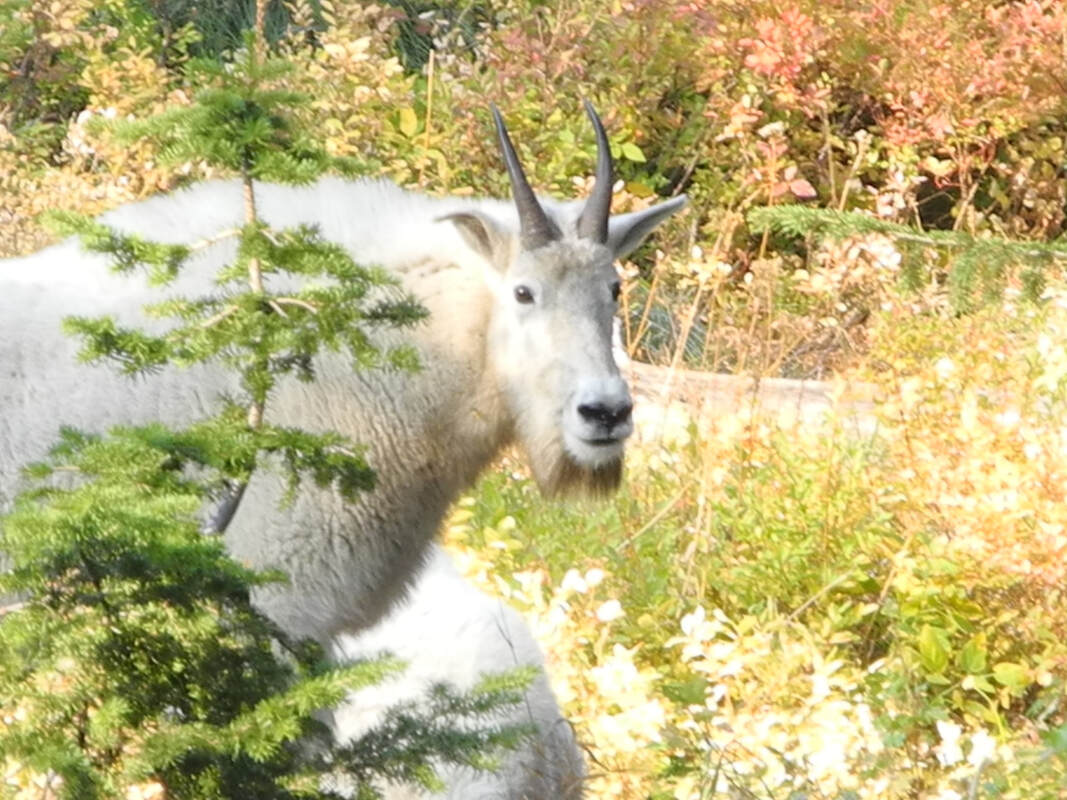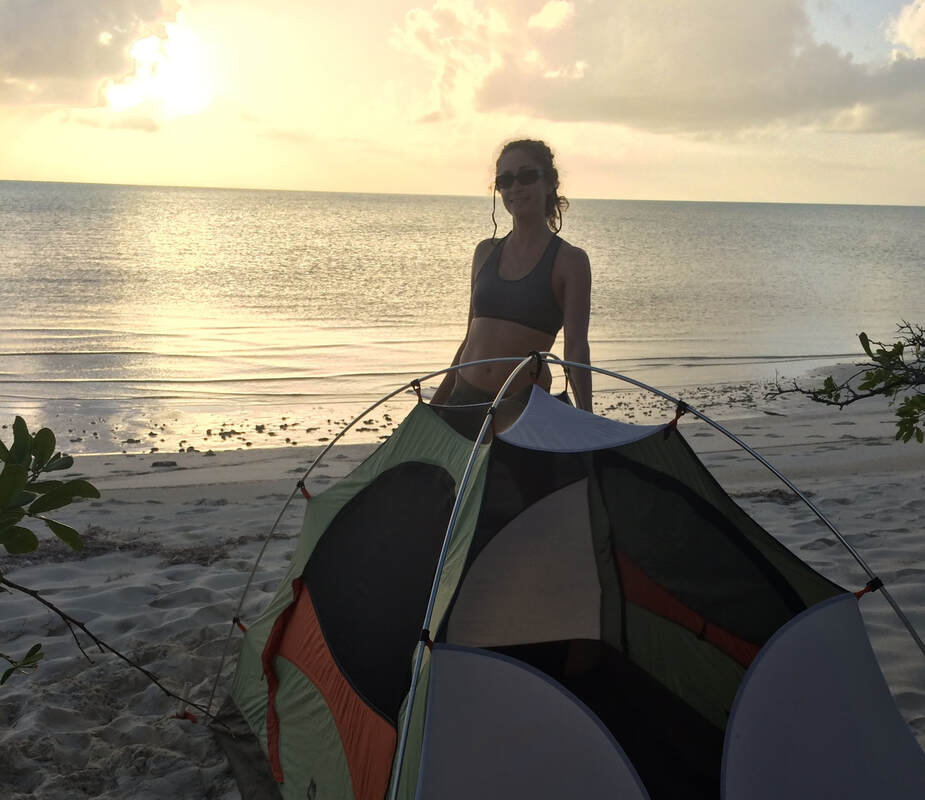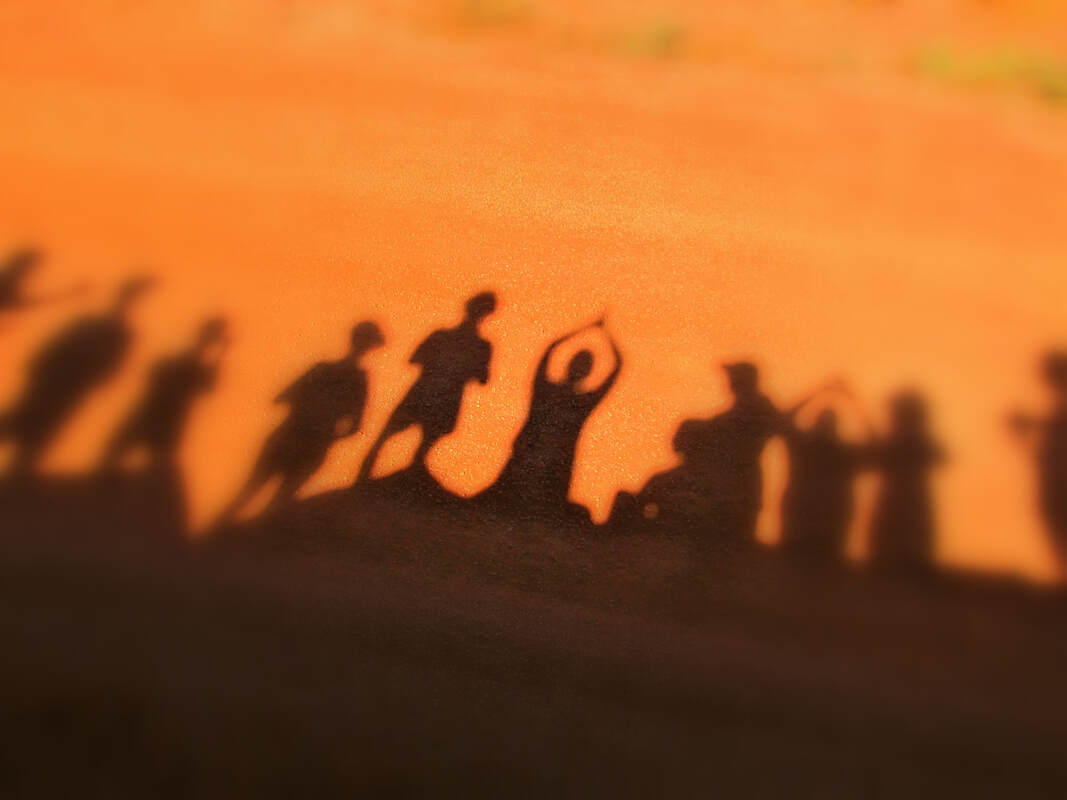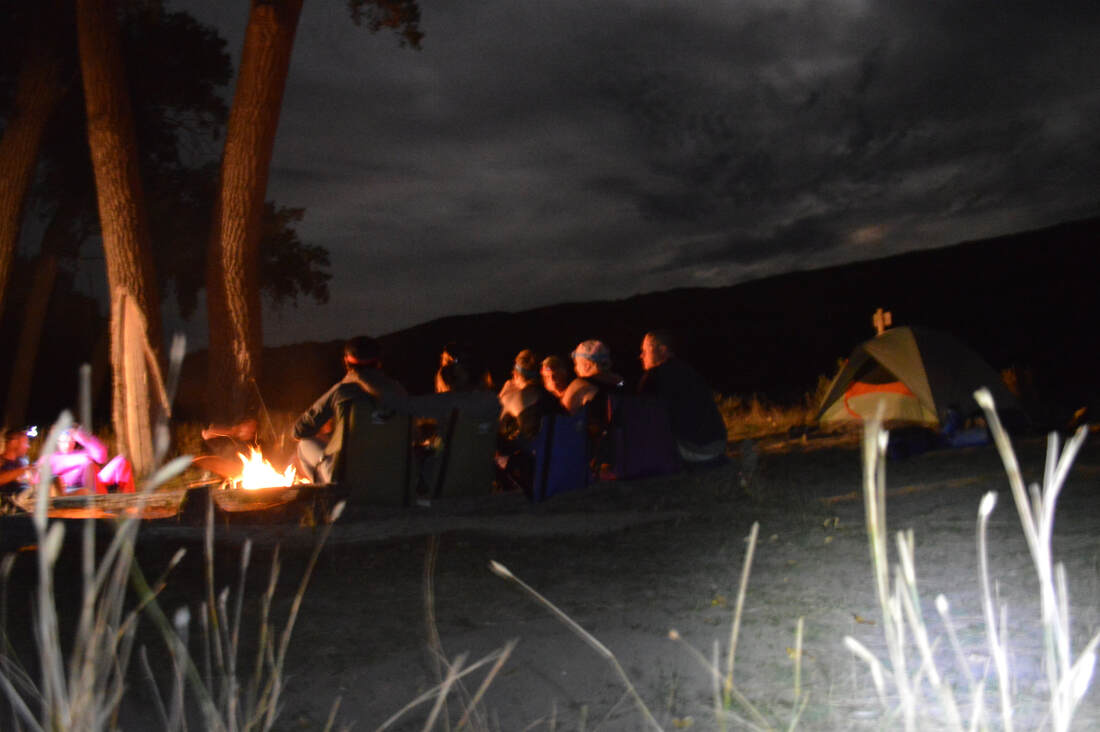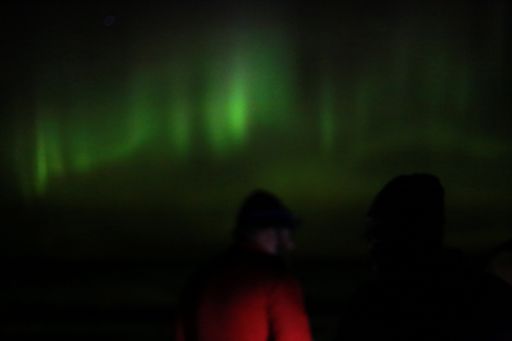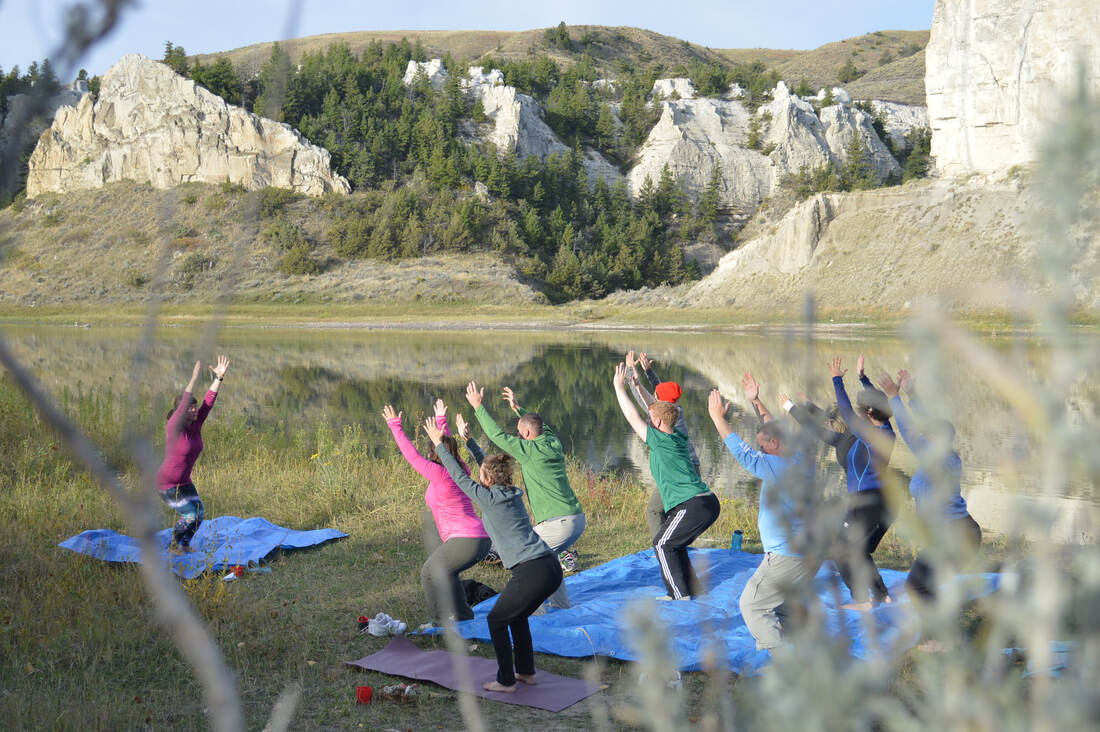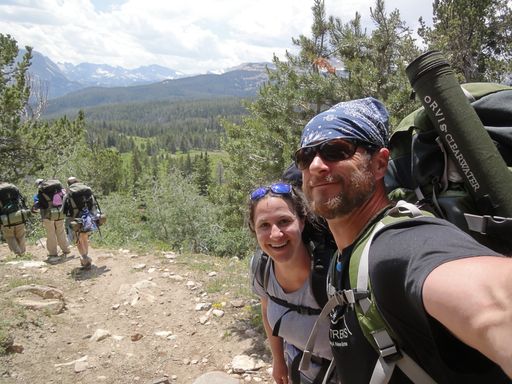"The most important thing I learned on this trek was that I am not alone. My fears, anxieties, and worries are shared by everyone here." - John
We've answered a few questions over the years that we'd like to share with you. If you don't see your specific question or answer on this page, please reach out to us at [email protected] and we'll get back to you.
What is TNT's COVID-19 Policy?
|
Baseline COVID-19 Vaccination Required. We require all of our accepted participants to have at least received their baseline vaccination for COVID-19 prior to going on a True North Trek.
Behavioral Precautions. While TNT's programs largely take place in the well-ventilated outdoor settings, we continue to abide by the following behavioral precautions: (a) If you are exposed to COVID-19 or symptomatic within a week prior to your trek, we ask you to get tested and report any symptoms to TNT personnel; (b) If you are symptomatic of having COVID-19 upon arrival or at anytime during your trek, we ask you to alert TNT personnel immediately so that measures can be taken (e.g., social distancing, quarantining, temperature check/testing, possible evacuation); (c) Mask-wearing is optional, however you may wear one at any time or in any space during your trek; (d) We encourage the regular use of hand sanitizer and practice of good travel hygiene to the trek destination and during group transportation. As information continues to be updated regarding possible risks and recommendations, we reserve the right to make final decisions on what aspects of this protocol will be implemented as it gets closer to the trek. We will be communicating this information regularly with approved participants and are happy to take any questions you may have. |
What is it like to go on a trek?
|
While each trek is unique in its own way, we try to uphold some
universal elements that can be found on any True North Trek. We make it a
priority to take our participants to mind-blowingly beautiful and
remote wilderness destinations where they can connect with others and
themselves in the peace and bounty of nature through backpacking and
canoeing experiences. And even when nature doesn't cooperate (e.g.,
mosquitoes, rain) we try to be as prepared as possible with the right
gear and equipment. One of our guiding values is "No bad weather. Just
bad gear." We make it a priority to be as safe as we can, to stay dry
and warm, to eat incredibly well, to be well-hydrated, to get a great
night's sleep, to have fun, to strike a balance between our programming
and having some downtime, to leave no trace, and to understand and
respect that everyone is coming to a trek from a different place, and
that our job is to try to meet people where they are. We don't make
anyone do anything they don't want to do, yet we also ask participants
to use this unique opportunity to see what it is like to step outside of
their comfort zone should those moments arise. We let participants know
that what they put into their trek is directly proportional to what
they will get out of it. We have a plan and itinerary, yet we're nimble
and flexible to roll with the punches should a hike or summit need to be
rescheduled or replaced with something else. We hike and paddle at the
pace of our slowest participants and remember that wherever we are, we
are together and exactly where we need to be. We actively look for
opportunities to serve one another and get each other's backs, from
calling out a branch to those behind you on a hike, taking part in meal
preparation or cleanup, helping someone tighten their PFD strap or apply
some sunscreen, to showing up, sharing, and, bringing your full self.
These things reflect the ethos of TNT. In between hiking and canoeing,
setting up camp, napping, swimming, hanging out and connecting, and
cooking and eating our delicious back-country meals, we spend some time
each day to learn and practice mindfulness meditation and gentle yoga.
Sometimes this happens while sitting around a campfire at night,
sometimes it's along the shore of a beautiful river or alpine mountain
lake at sunrise, or it might even be while hiking in silence along a
trail or canoeing along the river. While our treks might feel
adventurous to some, we don't bill ourselves as an "adventure
organization" but rather as a "connection organization." We harness the
supportive holding environment of Mother Nature to help us reflect, to
see ourselves and others for the human beings we are (as opposed to
human do-ings), to re-calibrate, and to renew.
|
What are TNT's 3 Crucial Connections?
|
The language we have available to talk about cancer treatment in the United States is pretty revealing in terms of what is important. People go to a "cancer treatment center"; they do not go to a "person treatment center." While our medical advances in this area are nothing short of miraculous, it can sometimes feel like the person affected by cancer is nothing more than an inconsequential "extra" on the set, instead of being the leading role.
Our mission is to empower young adults and caregivers affected by cancer to “find direction through connection” after the incredibly disconnecting experience of cancer during this age. When the lightning bolt of cancer strikes, the power can go out and leave a person and their family completely in the dark and disconnected from the life they once knew. Since our founding in 2009, we have centered our programming around 3 crucial connections that we believe are missing from conventional medical care, and help those we serve get their power back on, and keep it from going out again. These are: 1) Connecting with nature after experiencing something as unnatural as cancer treatment; 2) Connecting with peers who have hiked a similar path; and 3) Connecting with oneself through mindful awareness practices like meditation and yoga. We didn't just randomly pick these things from the sky. Each of these areas is based on a growing body of empirical research from the fields of cognitive & affective neuroscience; social, developmental, and health psychology; and integrative medicine and public health. Our treks can help repair and reestablish our fragmented relationship to the natural world - mind, body, and soil; they can help one discover the incredible power of finding and being found; and they can plant seeds of curiosity, patience, openness, gratitude, wisdom, and compassionate awareness that may perennially blossom day after day, long after the trek has finished. |
What have others said about their experience?
|
Throughout this website you can see lots of participant quotes and testimonials on the power of their experiences, but one of our TNT alumni who went on both a canoeing and a backpacking trek had the following things to say about her experiences: "I love everything about this group! I had heard about it in a completely random way, looked it up, and was intrigued by their premise. They offer backpacking and canoeing treks. If you’re a little more outdoorsy and like to challenge yourself physically, the backpacking treks are great, but if you’re not sure what to expect and are not completely confident with your physical abilities like I was (I had a total knee replacement and wasn’t sure what my new knee could tolerate) then the canoeing treks are perfect. I’ve tried getting involved in other young adult cancer related groups and haven’t found one that I’ve made the same connection with as TNT. What I love about this group are the people, the staff are amazing, and even if you never really talk to the other participants you meet on a trek again, for that one week, you are all very connected and in sync with each other. You truly do connect with nature and no matter what trek you participate in, the scenery is always beautiful. Another thing I love about this group is with other groups I’ve tried to get involved with, I’ve had people ask me what my diagnosis was before they asked me what my name was and it was very upsetting to me because I have worked very hard to find my identity post-cancer and I don’t want to be defined by my cancer experience. TNT was different in that sense because the “cancer” aspect of it wasn’t shoved in front of our faces on a daily basis. We all knew we were there because we each had had cancer at some point in our lives, but unless we wanted to talk about it among ourselves on our own time, we never had to reveal our diagnosis or what we had been through if we didn’t want to. And every night we would sit around the campfire and talk about the best part of our day and the worst and it was my favorite thing to look forward to in the evening. I have such great memories. I would recommend to anyone to go on one of the treks TNT offers!!"
|
Do I have to be through with my treatment to attend?
|
All participants need to have their primary physician, oncologist or medical provider who is most knowledgeable of their cancer history and medical status complete a medical form, which is also reviewed and approved by the Medical Director of True North Treks. As a primarily field-based organization, we do not have the capacity to accommodate people who are currently receiving active treatment that could potentially raise their risk of infection in the back country. However, we look at each person on a case-by-case basis to ensure they will be able to safely and successfully complete the trek. If you are approved by your cancer care team and ours you are good to go.
|
What if I am a survivor of a childhood cancer?
|
True North Treks primarily provides programming for those who have been diagnosed with cancer between the ages of 18-39 and are still in the 18-39 age range. We also offer programming for caregivers of young adults in this age range. If you do not fall exactly within these parameters and wanted to talk with us about your particular situation, please get in touch.
|
How much does it cost?
|
Going on a True North Trek is FREE and occurs at NO COST to our participants. We are pumped to be able to say and do this. If someone is able and interested in paying their way we won't stop them, but there is zero expectation for this. Zero. Zilch. Nada. If you'd like to know what it costs us, the range is somewhere between $1600-$2500 including airfare depending on the type and location of the trek.
|
What is the “Pay it Forward” Pledge?
|
Our Pay it Forward Pledge program asks all of our participants to make a pledge to try to help "pay it forward" to the next participant through their own grassroots fundraising efforts before/after their trek. We ask participants to make a pledge goal of raising $1200, which is less than half of what it costs each person on average. We help participants set up a personalized fundraising website and brainstorm possible ideas. We've learned that the longer a person waits to pay it forward, the harder it is to do, the more life gets in the way, and the greater the possibility that the pledge won't be completed. This is why we highly recommend that pledge fundraising begins before the trek even starts, and is completed no later than 3 months following a trek. Please note that while we ask our participants to make this pledge on behalf of a future participant, it is just a pledge and not a binding contractual agreement that holds any form of material consequence. We understand that some people, due to different life circumstances, are simply unable to fulfill it, either in part or in full. And that is OK. We get it. We just ask that people try their best (just as someone else did before them), whatever that looks like. We support participants and help them creatively brainstorm different ways to fulfill their pledge, and while we may check in early on to see how it's going, we do stop asking, and realize that it's not in the cards. Maybe it will be sometime in the future. Maybe not. Since the fulfilled pledge helps cover about half of the cost of one person, it is an incredibly helpful way for our organization to sustain what it does. In addition to helping pay for part of a participant's experience, the pledge also helps us get the word out about TNT to others who would have never heard about us before.
|
|
Can I go on a trek more than once?
|
Absolutely. We have many alumni who have participated on more than one trek. We have even created specific alumni treks for those who have gone before. In theory we prioritize letting someone new attend over someone who has gone before, but we have never had to turn anyone down. To go on a second trek, the Pay it Forward Pledge does have to be complete from the 1st one. We do not track everyone's exact completion of their pledge and ask participants to own this and provide us with some basic confirmatory documentation (e.g., photo of checks received or of a fundraising page showing the total).
|
Do I have to have any outdoor experience?
|
Our trek leaders will teach you everything you need to know to be safe and comfortable in a wilderness environment on your trek. It’s OK if you’ve never slept in a tent, carried a backpack, or paddled a canoe before! Our backpacking treks are more physically demanding than our canoeing treks as they require a person to carry their own backpack during the week. If you have any physical restrictions or challenges in doing this, you might consider a canoeing trek, where it is easier to carry your gear in a canoe vs. on your back. And if it's more appealing to start with less of a time commitment or back country immersion (e.g., if you only have a few days and you'd like to sleep in a bed and use a bathroom), check out some of our mini-treks at the TNT WALDEN Institute.
|
What are mindful awareness practices?
|
Mindful awareness is a way to slow down and re-connect to our whole selves through the deliberate practice of paying attention from moment to moment in an open and self-compassionate manner. Developing MAPs (Mindful Awareness Practices) helps one to live more intentionally, which increases appreciation, self-compassion, and sustained connection to the present moment. MAPs equip us with the ability to respond to stress and adversity instead of reacting to it. Through gaining greater awareness and acceptance for one's self and others, MAPS teach participants how to reset their demagnetized compass and to know where they are, moment by moment. On our treks we engage in MAPs in many different ways - sometimes while sitting around the campfire at night, sometimes in mindful movement along a riverbed at sunrise, sometimes while eating, sometimes while hiking. The possibilities are limitless.
|
I’m out of shape because of what I've been through. Can I still attend?
|
Yes, as long as you have been cleared by your physician and our medical team, we would love to have you participate. There is often ample time between being approved for a trek and the actual trek start date, and we are happy to give basic training ideas for improving physical fitness before your trek. Some have found our treks to be physically challenging, while others have not. If you're concerned about your level of physical preparedness, you might consider using your trek start date as a health promotion goal for which you increase your neighborhood walks with your dog or hit the gym a little more. But remember, our treks are not about getting to the top of Everest, but rather about getting out and exploring a beautiful place, together with others who "get it." |
What are some of the risks involved in a TNT trek and what am I agreeing to?
|
We place the safety of our participants and guides at the top of everything we do on our treks. However, some of the activities of the programs we engage in have inherent risks, which could not be completely eliminated without destroying the unique character of the activities themselves. The same elements that contribute to the unique character of these activities can cause loss or damage to equipment, accidental injury, illness, or in extreme cases, permanent trauma, disability or death. We do not want to frighten our participants or reduce their enthusiasm in any way, but we consider it our responsibility for everyone going on a trek to know in advance what to expect and to be informed of the activities and inherent risks. You may find our risk acknowledgement agreement by clicking the button.
|
Who leads the treks?
|
Trek leaders have experience and training in wilderness education, Leave No Trace principles, wilderness medicine, and mindfulness meditation and yoga instruction. Check out Our Team page for more information about trek leaders. Every back-country trek has at least 2 WFR-certified guides, and one mindfulness/yoga guide. WALDEN Institute guide teams vary depending on off-site activities.
|
What Should I Pack?
|
The gear and clothing you bring will depend on the type of trek you're going on. Please check out our gear lists below. If there is anything on the list that you do not have and are not planning on purchasing for yourself (we do not expect this) please let us know so we can check our inventory and see what we can do.
| |||||||||||||
Privacy NoticePrivacy NoticeIf you have any questions, please contact us at [email protected]
Privacy Notice
© COPYRIGHT 2008. ALL RIGHTS RESERVED.
Privacy Notice
© COPYRIGHT 2008. ALL RIGHTS RESERVED.

